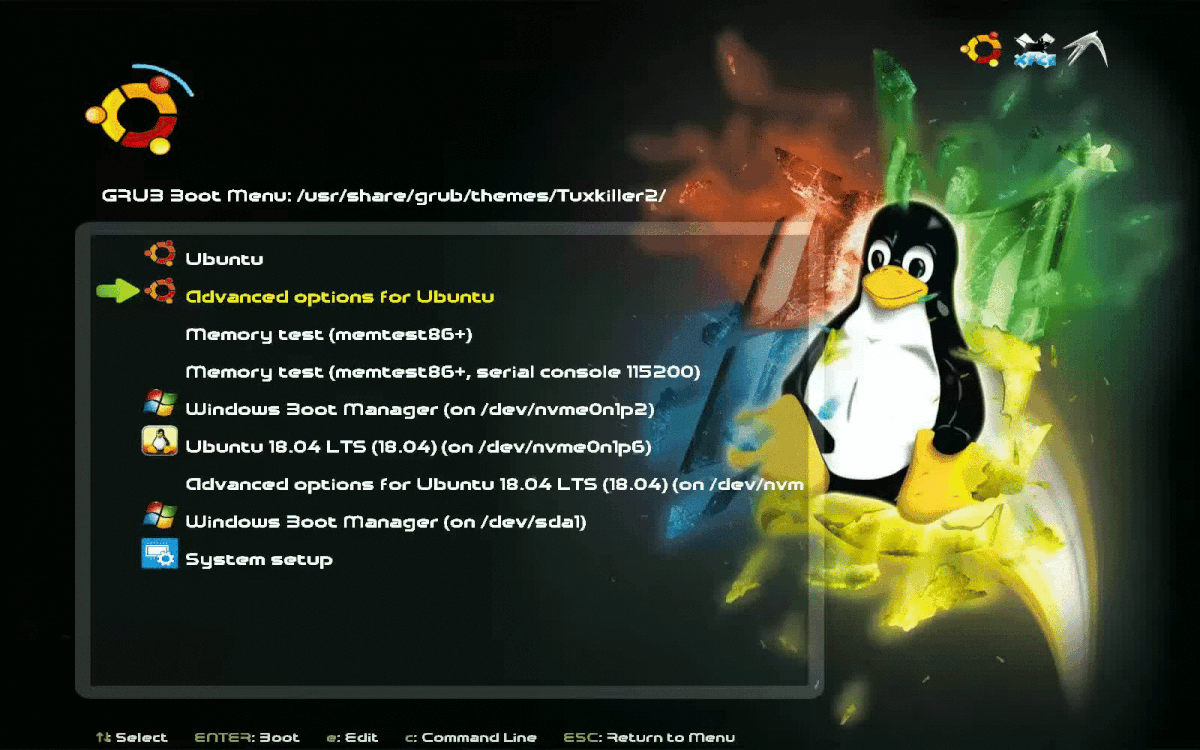Thanks to the help of the accepted answer I was able to achieve the goal using a different method. After successful Grub 2.02 source code change and recompile, /etc/default/grub was changed to a 3.5 second countdown with GRUB_TIMEOUT=35.
Notice how the circular progress is now smooth with no "chunks":
![New Grub Boot]()
The code to change in:
/grub-2.02/grub-core/normal/menu.c
Line 546:
/* Check whether a second has elapsed since the last tick. If so, adjust
the timer and return 1; otherwise, return 0. */
static int
has_second_elapsed (grub_uint64_t *saved_time)
{
grub_uint64_t current_time;
current_time = grub_get_time_ms ();
/* July 14, 2018 Use deciseconds - change 1000 to 100 */
if (current_time - *saved_time >= 100)
{
*saved_time = current_time;
return 1;
}
else
return 0;
}
Change the line:
if (current_time - *saved_time >= 1000)
to:
if (current_time - *saved_time >= 100)
Voila! one line of code to change. Plus two comment lines added for good measure.
How to compile grub 2.02
Before following instructions on Grub's website:
sudo apt install bison
sudo apt install flex
Then follow grub's website instructions:
cd grub-2.02
./configure
Run next command on Grub's website:
make install
Files are created in /usr/local/bin (surprise!!!) along with .../grub-2.02 directory which is to be expected.
Miscellaneous problems compiling grub
I ended up cloning source to VM (Lubuntu 16.04) and recompiling there. Using the newly compiled grub-install mucked things up and I had to use sudo apt install grub2 to get fresh install. Then manually copying newly compiled files to /boot/grub/i386-pc
My terminal-box got all skewed up so I'll have to create a new grub background image. In the image below I changed GRUB_TIMEOUT=35 for 3.5 second countdown.
July 16, 2018 update
Figured out to one parameter to use in order to get X86, EFI support:
./configure –with-platform=efi
*******************************************************
GRUB2 will be compiled with following components:
Platform: x86_64-efi
With devmapper support: No (need libdevmapper header)
With memory debugging: No
With disk cache statistics: No
With boot time statistics: No
efiemu runtime: No (not available on efi)
grub-mkfont: No (need freetype2 library)
grub-mount: No (need FUSE library)
starfield theme: No (No build-time grub-mkfont)
With libzfs support: No (need zfs library)
Build-time grub-mkfont: No (need freetype2 library)
Without unifont (no build-time grub-mkfont)
Without liblzma (no support for XZ-compressed mips images) (need lzma library)
*******************************************************
However, after make install there is an error:
Making install in grub-core
make[2]: Entering directory '/home/rick/src/grub-2.02/grub-core'
gcc -E -DHAVE_CONFIG_H -Wall -W -DGRUB_MACHINE_EFI=1 -DGRUB_MACHINE=X86_64_EFI -m64 -nostdinc -isystem /usr/lib/gcc/x86_64-linux-gnu/5/include -I../include -I../include -DGRUB_FILE=\"symlist.h\" -I. -I. -I.. -I.. -I../include -I../include -I../grub-core/lib/libgcrypt-grub/src/ -DGRUB_KERNEL=1 -D_FILE_OFFSET_BITS=64 -DGRUB_SYMBOL_GENERATOR=1 symlist.h > symlist.p || (rm -f symlist.p; exit 1)
symlist.h:25:44: fatal error: ../include/grub/machine/kernel.h: No such file or directory
compilation terminated.
Makefile:42544: recipe for target 'symlist.c' failed
make[2]: *** [symlist.c] Error 1
make[2]: Leaving directory '/home/rick/src/grub-2.02/grub-core'
Makefile:10904: recipe for target 'install-recursive' failed
make[1]: *** [install-recursive] Error 1
make[1]: Leaving directory '/home/rick/src/grub-2.02'
Makefile:11927: recipe for target 'install' failed
make: *** [install] Error 2
I filed a bug report with Grub folks (July 2018) but haven't heard a thing back. The next step for EFI system is to download the source code on fresh install using Ubuntu's repositories instead of Grub's website instructions.



GRUB_TIMEOUTin the source code. This allows you to find where the variable is handled. Then, read the code that handles it and proceed from there. – InteractiveGRUB_TIMEOUT=2.5orGRUB_TIMEOUT_MS=2500. – Frigorific